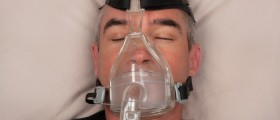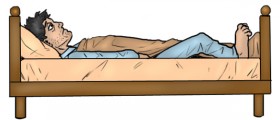
Insomnia, an inability to sleep adequately, is common for modern people. Today, people are often exposing themselves to stress and sleepless nights, in order to earn more money, uphold social status or achieve goals. Insomnia, an inability to sleep adequately, comes in many different forms. It may vary from mild to severe; or short time or long time, depending on the frequency and duration.
Causes of insomnia
There are many of reasons for insomnia, among them: poor sleeping conditions, circulatory or brain disorders, sleep apnea breathing disorder, psychosomatic disorders such as tension, physical and mental stress, or any other illness.
Tension is the main factor because of which people experience insomnia. Setting the ambitious goals and failing to achieve them often results in frustration and restless mind that make further impact on life by introducing the insecure feelings, stress and tension.
Severity of insomnia
Insomnia is not harmful if it occurs occasionally. Body may compensate the sleepless night with a couple of hours of extra sleep. On the other hand, regular or frequent insomnia may cause severe harm to the everyday life and functions of the body. Insomnia provokes sleepiness, fatigue, tiredness, irritability, and poor concentration. The lack of enthusiasm for everyday tasks may be present in people suffering from insomnia. This may further influence social goals in life.
Treating the insomnia
Depending on the severity of insomnia, it may be treated with simple traditional natural sleep aids or remedies like warm bath, milk or relaxation techniques. More severe and chronic insomnia may be cured with temporary use of barbiturates or tranquilizing drugs, hypnosis, or psychotherapy. If sleep apnea causes insomnia, it may be treated surgically.
Prolonged use of medications that affect our ability to sleep may lead to many unpleasant and harmful effects. It is important to understand that body gradually builds tolerance to the specific drugs, and doses that are more potent are needed to help fall asleep. Eventually this may lead to addiction.
Methods that one may want to try including some efficient self-help tips include introducing the regular routine by trying to sleep at the same time every day may help to set up patient’s body clock. Instead of taking drugs to sleep patients should take warm baths, drink warm milk just half an hour before going to bed, and avoid dirking coffee, tea, alcohol and soft drinks. Alcohol may also introduce sleep disturbances. Simple things like physical work during the day, avoiding heavy food late at night, and having light snacks before 8pm may significantly improve patient’s sleep.

















Your thoughts on this
Loading...